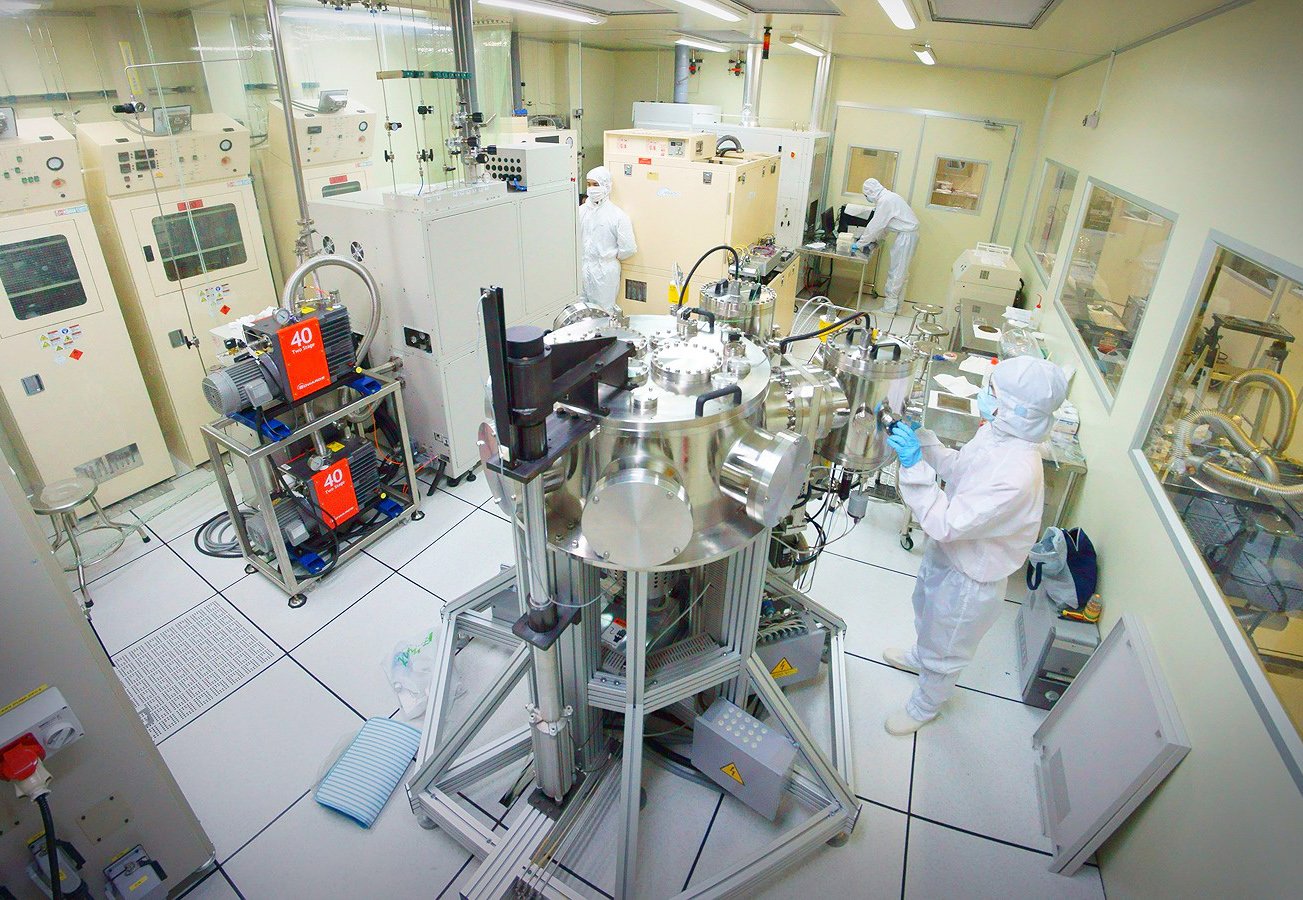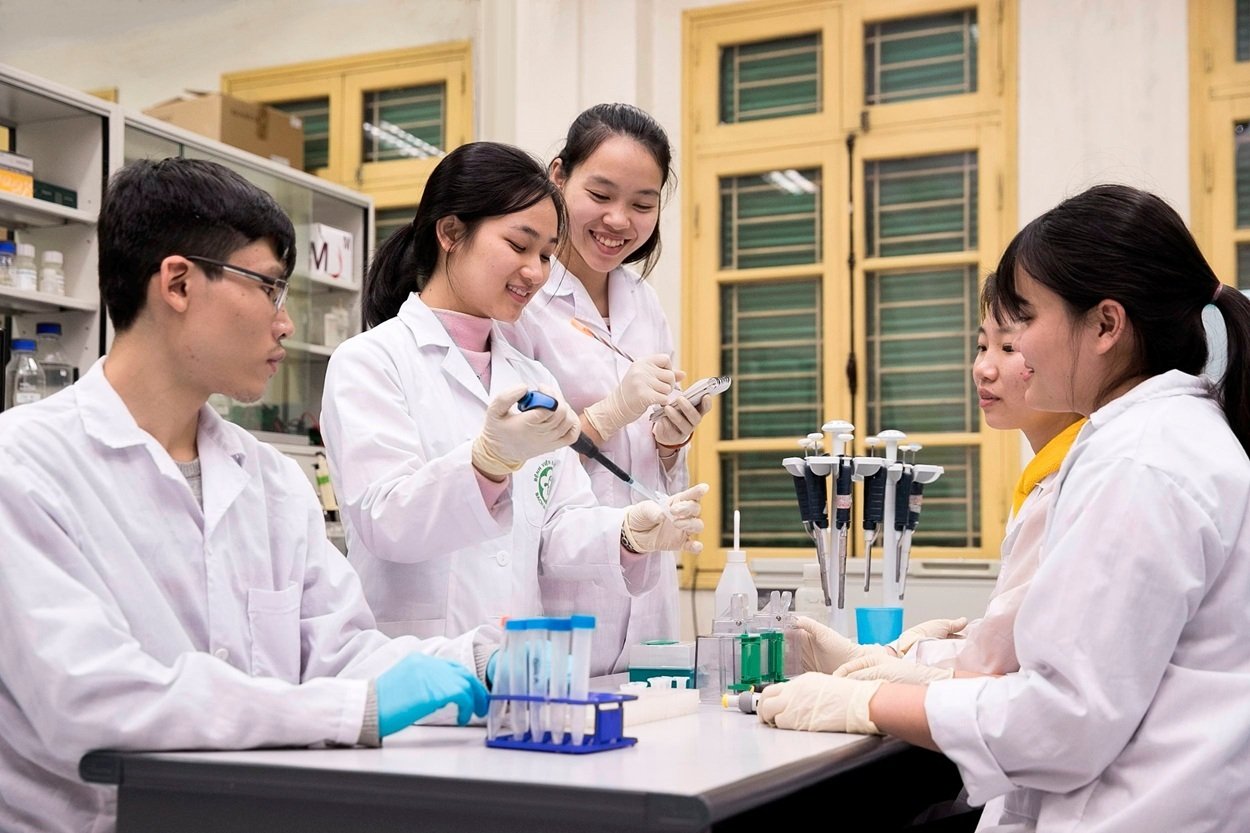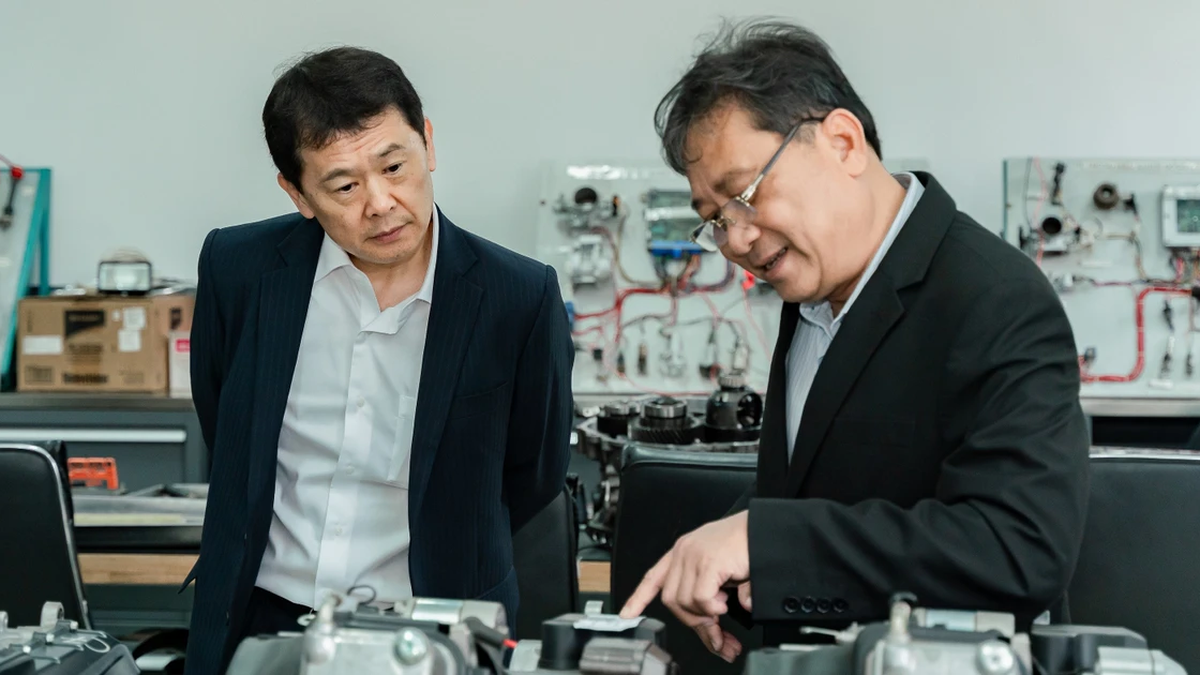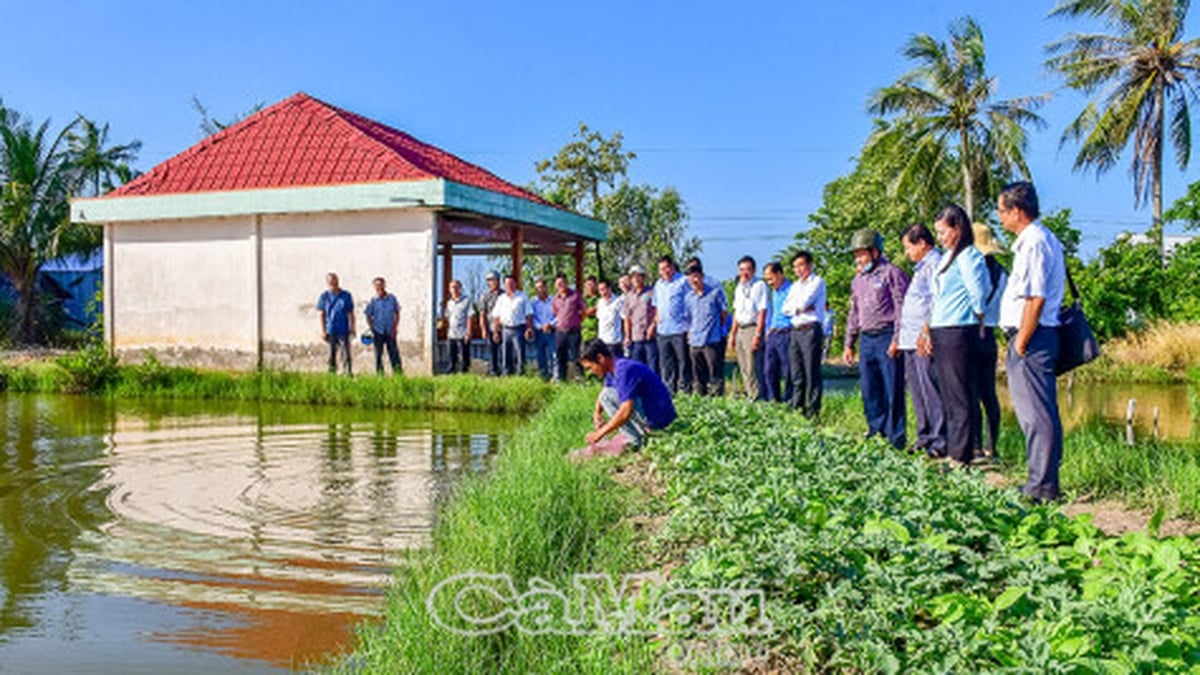
1. In the context of the strong development of the Fourth Industrial Revolution, the role of intellectuals in general, and scientific and technological (S&T) researchers in particular, is becoming increasingly important. Our Party has always paid attention to building an intellectual team to serve the country's development. The 7th Central Conference of the 10th tenure issued Resolution No. 27-NQ/TW, dated August 6, 2008, "On building an intellectual team in the period of accelerating industrialization and modernization of the country" (Resolution No. 27-NQ/TW), which clearly affirmed the viewpoints, policies, tasks and solutions for building an intellectual team to serve the cause of industrialization and modernization of the country. At the 13th Congress, our Party determined: “Building an increasingly strong and high-quality intellectual team to meet the requirements of national development in the new situation. Having a mechanism to promote democracy, freedom of creativity and uphold ethics and responsibility in scientific research,…” (1) .
Resolution No. 45-NQ/TW of the 8th Central Conference, Session XII, “On continuing to build and promote the role of the intellectual team to meet the requirements of rapid and sustainable national development in the new period” assessed that after 15 years of implementing Resolution No. 27-NQ/TW, awareness in the Party, the political system and society about the important position and role of the intellectual team has become more complete, comprehensive and profound. Mechanisms and policies, especially policies to attract, employ, honor and reward to promote the role of the intellectual team, continue to be improved. The Vietnamese intellectual team has received attention in training, fostering, investment in resources and facilities, creating a favorable working environment; has rapidly increased in quantity, improved in quality, actively contributed to the planning of the Party's policies and guidelines, the State's policies and laws, contributed significantly to the country's many great achievements of historical significance in the renovation process; at the same time, continued to make important contributions to training high-quality human resources, building the country to develop quickly and sustainably...
Resolution No. 45-NQ/TW also clearly states the limitations and shortcomings in developing the intellectual team. These are:
The incentive mechanisms and policies are still scattered, not focused, low salaries and allowances, not really meeting the requirements of modern life. The recruitment, incentive and talent attraction mechanisms still have many limitations and shortcomings. The Party and State's policies and guidelines for intellectuals are still lacking, not consistent or do not meet practical requirements. The policies and mechanisms for managing scientific, technical and technological activities are still backward and slow to be renewed...
The awareness of some Party committees and authorities about the position and role of intellectuals and their responsibilities towards intellectuals is not complete and profound. Authorities at all levels have not paid due attention to consulting the opinions of intellectuals in participating in the development of mechanisms, policies, and socio -economic development projects of the locality, as well as the critical opinions of local intellectuals on important programs and projects related to national economy and people's livelihood...
Vietnam is lacking good experts, scientists who are truly dedicated to their profession, and civil servants in the government apparatus at all levels who are proficient in their profession and meet the increasingly high demands for public ethics. The role and position of the intellectual community is sometimes and in some places still underestimated, not given due importance, and has not attracted a group of intellectuals with high professional qualifications working in foreign science and technology research agencies...
2. Among the country's intellectuals, the team of scientific and technological researchers (scientific and technological staff/scientific staff) plays a pioneering role in implementing the Fourth Industrial Revolution. Implementing Resolution No. 27-NQ/TW of the 10th Party Central Committee, many young scientists trained in developed countries have returned to serve the country's science and technology. This shows that our country's intellectuals have grown in both quantity and quality; actively participating and contributing to the implementation of major policies of the Party and State in the cause of building and defending the Fatherland. Resolution No. 57-NQ/TW, dated December 22, 2024, of the Politburo, stated: “In recent times, our Party and State have had many policies and guidelines to promote the application and development of science and technology, promote innovation and digital transformation, proactively and actively participate in the Fourth Industrial Revolution, and achieve many important results” (2) .
In addition to the advantages, the current difficulties and shortcomings in building a team of science and technology cadres mainly lie in the organization and implementation, including the regime and policies. Accordingly, the income of the majority of science and technology cadres is still low due to the lack of allowances in addition to the basic salary. Budget investment in science and technology is still biased towards the target of new products, creating shortcomings compared to investment in developing human resources and factors. Public science and technology research institutes (research institutes) are no longer attractive destinations for many talented people, while FDI enterprises and private enterprises have great appeal because of good treatment and high salaries... These shortcomings have also been clearly stated by our Party: "...the speed and breakthrough in the development of science, technology, innovation and national digital transformation are still slow; the scale, potential, level of science, technology and national innovation are still far behind that of developed countries..." (3) .
Our Party has identified viewpoints, goals, tasks and solutions to continue building and promoting the role of intellectuals, including science and technology staff. Accordingly, the most important thing now is to strongly innovate thinking, enhance consensus on the position, role and importance of building science and technology staff in the new development context.
To achieve the immediate goals and socio-economic development strategy by 2030, striving to make Vietnam a modern industrial country by 2045, in addition to orientations, policies, and solutions for science and technology development associated with high-quality human resources, political and ideological education is the key solution to build a team of science and technology staff who are both "red" and "specialized".
3. Building a team of science and technology cadres that are both "red" and "specialized" to serve the cause of building and defending the Fatherland is the basic and consistent viewpoint of our Party. Among important tasks, political and ideological education is a fundamental, long-term solution that needs to be given regular attention and implemented effectively.
Political and ideological education not only aims to equip and foster the team of science and technology cadres to be imbued with the Party's viewpoints, guidelines, policies, and the State's policies and laws on socio-economic development, ensuring national defense and security, expanding international relations, etc., but also to foster ideals and beliefs, overcome limitations, wrong perceptions, and deviations, especially for the team of young cadres in the face of complex and unpredictable developments in the world situation.
Basically, the current team of science and technology cadres in our country is well-trained, has a high level of education, and extensive knowledge; plays an important role in the development of science and technology of the country; promotes the process of industrialization and modernization of the country, directly impacts the socio-economic development, and improves people's lives. Paying attention to building and developing the team of science and technology cadres is not only about ensuring regimes, policies, and working conditions, but also needs to pay attention to fostering awareness of political issues, ideology, beliefs, professional ethics, social responsibility, etc.
In general, the work of political and ideological education for the scientific and technological staff of our country in recent years has had many positive innovations, in line with the comprehensive renovation of the country and international integration in the context of the Fourth Industrial Revolution. The promotion and improvement of the quality of political and ideological education has been focused on all stages and fields, including subjects, contents, forms, and methods of political and ideological education; bringing about important results, both in ideological work and in professional activities of research institutes, academies, schools, etc.
However, the work of political and ideological education for the team of science and technology staff is also facing difficulties, shortcomings and limitations related to the organization, ensuring the content and implementation methods. This makes the results of political and ideological education work not high, not contributing positively to the completion of professional tasks of science and technology research agencies.
The current situation of political and ideological education for science and technology staff in our country is posing a number of issues that need to be solved.
Firstly , thoroughly grasp and raise awareness of political and ideological education subjects in science and technology research agencies and units.
In practice, the awareness of educational entities about the importance of political and ideological education for science and technology staff is still inadequate compared to the requirements. The awareness of some party committees about this task is not complete and lacks regular attention. Leadership methods are slow to innovate. Coordination work is sometimes and in some places still lacking in synchronization, failing to mobilize the combined strength of the political system in science and technology research institutes.
In addition, the qualifications and professional capacity of a number of educational staff are still limited, not meeting the needs of learners, especially those who have received basic training in science and technology. Lectures are still heavy on theory, not closely related to reality, so there are many issues that are difficult to apply in life.
The failure to fully promote the role of socio-political organizations in political and ideological education is also a problem for many research institutes. Youth Union organizations, Women's Unions, Veterans Associations, etc. have not been mobilized to participate actively and fully, making the effectiveness of political and ideological education activities limited and dependent on the role of the leader. Practice shows that after implementing autonomy and self-responsibility in scientific and technological research, in some research institutes, the role of socio-political organizations has not been promoted, leading to a lack of democracy in scientific and technological research, the emergence of interest groups and individualism; scientific research work has not had a long-term strategic orientation, has not met the requirements and tasks; a part of scientific and technological staff have not had their legitimate rights protected, so they lack dedication in research, and there is still a "brain drain". The situation of a number of science and technology research cadres being "indifferent to the Party, lacking in solidarity, and afraid to study politics" is one of the limitations caused by weaknesses and inadequacies in political and ideological education.
Second , raise awareness and responsibility of science and technology staff.
The awareness and responsibility of the scientific and technological staff in research institutes plays a very important role in the results of political and ideological education. However, the awareness of responsibility of a number of scientific and technological staff is currently limited due to various reasons. The problem is to pay more attention to the subjects of political and ideological education in research institutes; promote democracy, ensure material and spiritual benefits for this staff, thereby arousing the collective spirit, promoting initiative, readiness to participate in common activities; educating the self-awareness and political activism of each person.
Third, innovate the program and content of political and ideological education.
In general, the content of political and ideological education for the team of science and technology staff has not been designed to closely match the needs and characteristics of the subjects. Currently, there is no separate program or specialized program for this team of staff. The participation of highly qualified scientific research staff in elementary political theory training with other groups of subjects leads to inadequacies and inconsistencies. On the contrary, the separation in the content of political and ideological education for senior, strategic and mid-level leaders and the team of scientific research staff; between policy makers and scientists; between staff and employees... also leads to a lack of cohesion when implementing political and ideological education at research institutes.
Political and ideological education activities in many scientific and technological research institutes have not been associated with the fight against individualism in scientific research. In the current context, the idea of "private ownership" and personalization in scientific and technological research has been indirectly formed; unhealthy competition has emerged, forming "interest groups" in research. Along with individualism, there has also been localism, sectionalism, regionalism, and conflicts of interest between research groups, organizations, and research units. One of the causes of this situation is the limitations and weaknesses of political and ideological education in research institutes. Therefore, the problem is to focus on resolving shortcomings in political and ideological education, thereby creating "resistance" for the scientific and technological staff against negative impacts.

Fourth, apply political and ideological education methods suitable to the characteristics of the scientific and technological staff.
In general, the method of political and ideological education, including forms, methods, means... has not really met the requirements; it is still monotonous, slow to innovate, and not suitable for the subjects of science and technology staff in research institutes. There is a lack of methods to build practical situations associated with the field of science and technology research. Some new methods, which are evaluated to be highly effective, promoting the positivity and initiative of the subjects, such as dialogue, group discussion, Q&A, practice... have not been exploited and used regularly. Besides, the use of time in educational activities is not really effective, some lecturers and reporters have not used up all their class time... Currently, in most research institutes, the team of reporters and propagandists participating in political and ideological education is still small in quantity, limited in quality, and operates irregularly.
Means of political and ideological education in scientific and technological research facilities and units in general are still limited and not uniform. Most still use large halls - places for organizing conferences and political theory classes. Many items and works serving scientific and technological research activities have been built and completed but are rarely used. The facilities, travel conditions, and ability to gather enough cadres and party members of some units under large research institutes are still limited, affecting political and ideological education activities. In general, the conditions for ensuring political and ideological education in many research institutes have not been invested in adequately compared to the requirements in the new context.
Fifth, the connection between political and ideological education activities and scientific and technological research activities is not tight and ineffective.
The awareness of a number of science and technology cadres about political and ideological education activities is still limited. Although they have attended training courses, in reality, the political and ideological awareness of a number of cadres and party members is still inadequate; their political attitudes and beliefs are not yet firm; their will to strive is reduced, they are afraid of difficulties; they fall into pragmatism; they have a selfish and indifferent lifestyle, violate the law, violate party discipline... Some even unintentionally or intentionally assist hostile organizations and individuals, including the dissemination and distribution of toxic products...
Some science and technology officials also violate ethics in scientific research; do not complete assigned research with the right quality and deadline; evade and do not actively participate in social activities; are indifferent or turn their backs on general movements of agencies and units...
Through the above contents, we can see that there are still many urgent issues arising in the political and ideological education activities for the scientific and technological staff of research institutes. This requires more efforts from responsible agencies and the leadership of research institutes, from each cadre and party member, for the goal of building and developing a scientific and technological human resource team that is good at expertise and profession, steadfast in political theory and ideology, meeting the requirements of national construction and development in the new era./.
-----------------
(1) Documents of the 13th National Congress of Delegates , National Political Publishing House Truth, Hanoi, 2021, vol. I, p. 167
(2), (3) Resolution No. 57-NQ/TW, dated December 22, 2024, of the Politburo, “On breakthroughs in science, technology, innovation and national digital transformation”
Source: https://tapchicongsan.org.vn/web/guest/nghien-cu/-/2018/1111102/giai-phap-then-chot-de-xay-dung-doi-ngu-can-bo-nghien-cuu-khoa-hoc%2C-cong-nghe-vua-%E2%80%9Chong%E2%80%9D-vua-%E2%80%9Cchuyen%E2%80%9D.aspx


























![[Photo] National Assembly Chairman attends the seminar "Building and operating an international financial center and recommendations for Vietnam"](https://vphoto.vietnam.vn/thumb/1200x675/vietnam/resource/IMAGE/2025/7/28/76393436936e457db31ec84433289f72)










































































Comment (0)